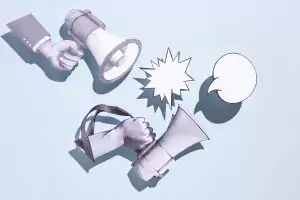
✅ AI Essay Writer ✅ AI Detector ✅ Plagchecker ✅ Paraphraser
✅ Summarizer ✅ Citation Generator
Hi everyone!
Have you been in a situation when a quarrel between you and another person suddenly occurred out of nowhere? As for me, I used to know some people who have now stopped talking to me because when they asked for my opinion on their writing, I didn’t just praise it, but also pointed out some flaws. However, despite the fact that many people nowadays dread critique, it is part of a healthy writing process.
As it has been already said a million times, critique is an important feedback source, and a guideline to your self-improvement as an author. Today, I’d like to chalk out some of the most typical mistakes that critics usually pay attention to, and tell you how to fix those problems.
1. Wordiness. Many amateur authors for some reason believe that being a writer means writing a lot where a small amount of words could do. Sorry to disappoint you, but no. In fact, conciseness is one of the keys to writing success, because it’s so easy to lose meaning behind words. Whenever you write, remember that maybe 70% of your writing can be rephrased in a clearer and shorter way.
2. Lack of details. This is another typical mistake usually made by writers who are already aware of the rule of conciseness. They tend to confuse concise writing with poor writing. By “conciseness” it is not implied that you should avoid describing anything, or ignore small details. It means these descriptions and details should be recorded in a precise way (like saying “fast” instead of “on a timely basis”), and that no unneeded details should be included in the text.
3. Using “weak” verbs. This is a common mistake, although many authors rarely notice them. What do I mean by saying “weak” verbs? Check out the following examples.
– “Hey, watch where you’re going!” Jack said to the tall guy that bumped into him.
– “Hey, watch who you’re shoving!” Jack yelled at the tall guy who bumped into him.
The first sentence looks weaker, doesn’t it? Of course, in this example, the “weak” verb is obvious, but there are lots of situations when it is not so easy to figure out how this or that particular verb contributes to the meaning and general picture.
4. Passive voice is a huge NO. It makes your writing sluggish, it is confusing, it is boring, and makes readers fall asleep. What other reasons would you need to stop using it?
5. Slang is acceptable in direct speech when you need to convey the real way people talk to each other. For example, if you write about people living in Harlem, it would be ridiculous to make them talk to each other like Cambridge professors, and in this case, slang (given that you know it) is even necessary. Unfortunately, many amateur writers use slang even in indirect speech, or the author’s speech. I’ve once read a description of a main heroine that sounded like, “She looked cool, really cool—like a babe from a glossy magazine cover.” It made me want to burn the book.
There are many other typical mistakes that amateur writers make that cause critics and other readers to criticize them, and I will be highlighting these mistakes from time to time. As for now, consider the above-mentioned points in your writing, and your writing will improve.
Good luck!
Follow us on Reddit for more insights and updates.




Comments (0)
Welcome to A*Help comments!
We’re all about debate and discussion at A*Help.
We value the diverse opinions of users, so you may find points of view that you don’t agree with. And that’s cool. However, there are certain things we’re not OK with: attempts to manipulate our data in any way, for example, or the posting of discriminative, offensive, hateful, or disparaging material.